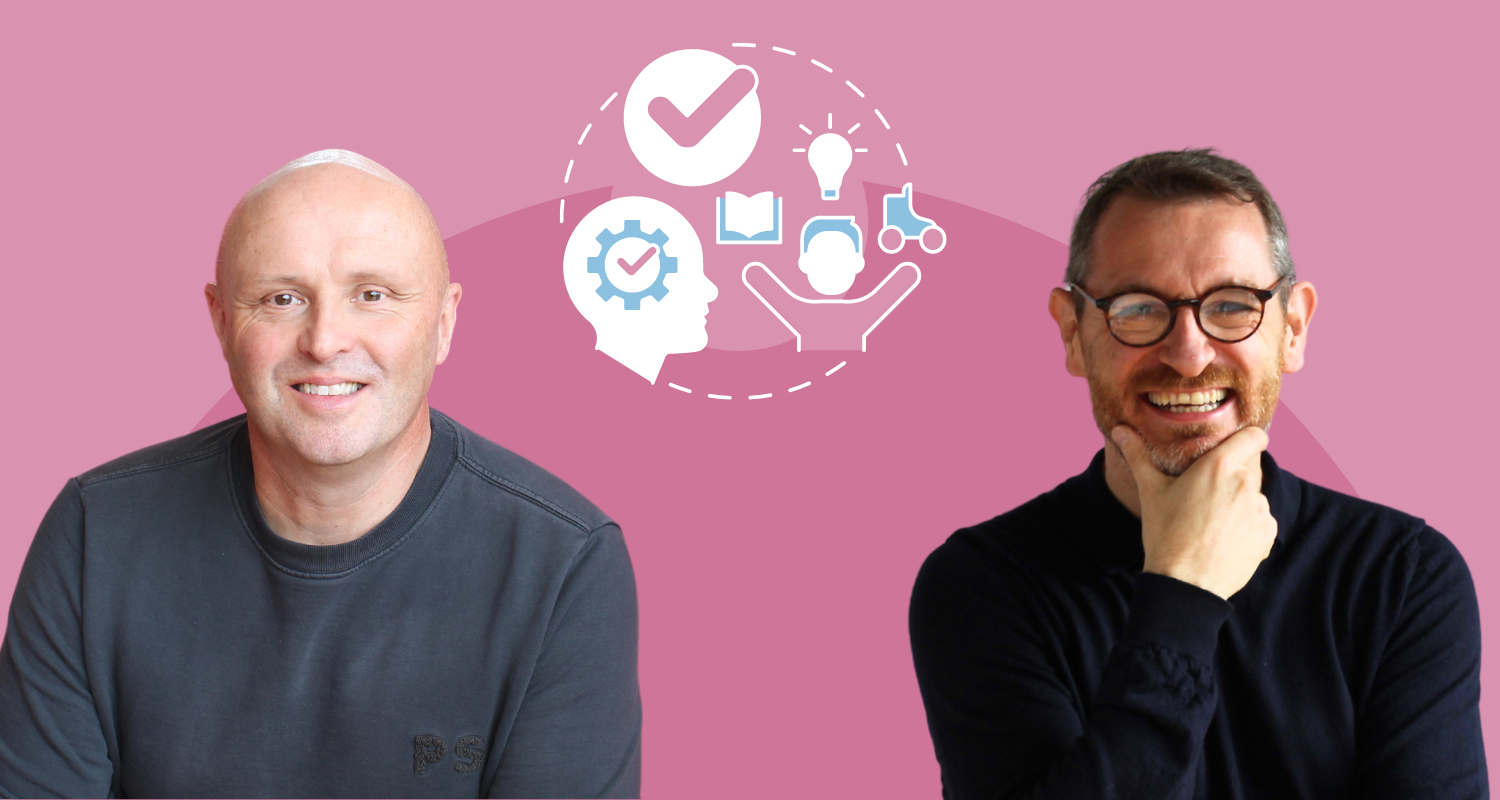Hi, my name’s Dr Paul Brewerton, the strengths guy, Doctor of Organisational Psychology and Founder and Chair of Strengthscope. I’m very excited today to have on the show Strengthscope’s very own Head of Training and Integration – the warm and wonderful Mr Scott Christie.
Hello Scott.
Now, Scott has been on the podcast before today, telling his own strengths career story, so if you’re interested, check it out: Maximize your Adaptability Quotient using strengths with Scott Christie.
Today, we don’t want to talk AQ, we want to get into a really important topic that comes up for us a lot at Strengthscope – it’s strengths vs. skills. Are strengths or skills going to be more important when we think about the future world of work and the future workforce? And quite frankly, right now? What are strengths and how are they different from skills? Can you have one without the other?
So Scott, I know you ran a session on this at main conference CIPD (that’s the flagship HR annual conference and exhibition here in the UK) a few months back. Let’s just jump straight in if that’s ok,
I’m really keen to understand your perspective on this. What’s your view? Is it strengths and skills ‘either-or’ or ‘and-and’?
Precis of my CIPD talk overarching themes – changing world of work needs a different perspective to reskilling/upskilling and a focus on long term human journeys rather than one off training sessions. can then hone into IBM study around AI.
Lots of noise around AI replicating/replacing skills. AI can take away the boring stuff This is where strengths comes in. Deal with constant change, resilience, innovate around performance.
Practically how does this work? Say I’m an accountant. It’s simple for me to get a skill based job qualification which is transferable and recognised across the industry. Actually across all industries. Are you saying don’t do that? Or is strengths somehow the ‘how’ vs the qualification ‘what’?
Reference Manchester branch CIPD. Different session and themes on hot topics in L&D – AI replacing research and analytical skills, so how do employees future proof their development and impact when ‘skills’ being taught now my be outdated in 3-4 years?
Strengths are role agnostic.
Helps you understand new skills you’ll need.
How do you bring your unique self. Self motivate and self drive in your role – key in the remote / flexible world of work where there is less ‘visual’ accountability and support.
So how should L&D and HR professionals introduce the IDEA of strengths into employees’ personal development plans so that it becomes more nuts and bolts practical? Can you give me an example?
It’s not ‘one and done’. Intro if strengths is something to roll out across your business. Create a practice. Small incremental habits that don’t take too long. Reflection and preparation. Can I have an hour each week or month. Part of flow of work. Strengths into project plans/meetings?
Ok. Let’s use a real-world example. How would it look in a retail bank?
Would look the same in a retail bank as it would in most businesses. Understand the individual and the collective strengths of people and build in visibility and simple processes. We have tech partners where you can access via an app wheel on the wall remote work, share info on teams etc. meetings, conversations, our coaching signatures have three strengths.
Advocacy – if you have someone in your business who has growth mindset start with them and build your own case study. Journey of awareness. not black and white like skills training. Becomes second nature. I’m the Strengthscope example.
I can see that people would naturally have more energy for developing in areas they feel naturally strong in, like if you said to me ‘Paul I want you to take your Collaboration to the next level from a skill POV, here’s how’ I’d be so much more excited for that than for you asking me to hone my Efficiency drainer by attending a PM course. But a) how do I overcome the performance gap on my lack of energy for planning and b) what would me taking my Collaboration strength to the next level skills wise actually look like?
Scott’s story about sales role and feeling drained.
- A) what is benefit of me leaning into the drainer? Can you work with someone else who loves/is energised by this. Are leaders getting support from right people.
- B) What’s the impact you want to have? What’s the context? Think sharper around role needs and outcomes you’re trying to drive. This is about intentionality with strengths. It’s not passive. It’s about how and when you use your strengths. In combo and in context. Again showing that you don’t map strengths to a role and need to allow the awareness to develop and be applied in order to support development of results – talks to continued personalisation of development as well.
Something we’re often asked by clients is can you map skills to strengths? So that I can see what skills it might make sense for me to try and develop given the strengths I have? Is there an algorithm for that?
Strengthsportal where people complete their assessment. KYS, then goal wizard which sets up for intentional use. Coaching tips course for 70/20/10 rule. That’s our algorithm focus – the indivudal is their own algorithm.
You won’t use one strength. Comes down to skill development it’s self awareness and reflection. Think about diff parts of your role. Mixing desk analogy.
Scott, that’s been magical. Can I just ask if people want to contact you, how best to do that? What’s your fave ways?
OK, let’s leave it there. Do check out Scott’s podcast on AQ, which can be found in the Resources section of the Strengthscope website. Thank you Scott, you have been, as ever, a wonderful human. Till next time everyone, stay strong.







